#Low-calorie chia seed pudding for healthy eating
Explore tagged Tumblr posts
Text
The Nutritional Value of Chia Seed Pudding: Is It Worth It?
Chia pudding is a nutrient-dense superfood dessert, perfect for health-conscious eaters. Learn how its fiber, protein, omega-3s, and antioxidants can benefit your health, aid in weight loss, and support overall wellness.
Introduction Chia seed pudding is an easy-to-make, nutrient-dense dessert that’s loved by health-conscious eaters worldwide. But is this creamy treat really worth the hype? In this post, we’ll dive deep into the nutritional value of chia seed pudding, exploring its health benefits and potential downsides. From its impressive fiber content to its protein profile, this article will help you…

View On WordPress
#Antioxidant-Rich Foods#Chia pudding for weight loss#Chia Pudding Nutrition#Chia pudding with almond milk#Chia Seeds for Heart Health#Chia Seeds Health Benefits#Healthy Chia Pudding Recipes#High Fiber Foods#Is chia pudding good for weight loss? Health benefits of chia pudding#Low-Calorie Chia Recipes#Low-calorie chia seed pudding for healthy eating#Nutritional Value of Chia Seeds#Omega-3 Rich Foods#Plant-Based Protein Sources
0 notes
Text
My fav healthy meals/snacks for cravings🥗🥦🥥

These aren’t necessarily the healthiest meals but you can’t just eat chicken and broccoli your whole life so here are some of my favorite things to eat when I have a cravings.🥗🥥🤍🫶🏻
Drinks. I am the kinda girl that I need a beverage in my hand I do drink a lot of water but I also like fun drinks.
Smoothies (wide variety of flavors and with the right protein powder they can taste like a milkshake.
Matcha (I drink this when I want caffeine but know too much won’t help)
Kombucha (acquired taste but very good if you have a stomachache)
Sparkling water (gives that soda feel)
Water flavorers ( I like the crystallite ones they are low calorie and very good)
Snacks and meals
Dark chocolate covered fruit
Greek yogurt fruit and maple syrup (depending on how much fruit and yogurt this can be a meal or a snack it also is high in protein)
Chia seed pudding (I do 2tbsp of chia seed to a half cup of milk then I add a splash of vanilla and maple syrup tastes amazing)
Sweet potato fries in an air fryer (I prefer sweet potato but you can use regular potatoes too)
Toast with avocado and eggs
Frozen fruit with honey for a cold summer treat.
Pickles ( I am a pickle girl I love them so much)
Hummus on veggies
Really dark chocolate ( like 80% and up eat a piece when you have a craving it takes that craving away immediately great for pms)
Those are my go to craving snacks hope you try and like a few!! 🫶🏻🤍🥦🥗🥥🧘🏼♀️
#it girl#that girl#girlblogging#glow up#self care#coquette#self love#healthy#becoming that girl#healthyliving#healthy girl june#healthy girl#healthylifestyle#healthyfood
1K notes
·
View notes
Text
What Should a Woman Eat for Breakfast to Lose Weight?

Breakfast is often called the "most important meal of the day" because it kickstarts your metabolism, fuels your body, and sets the tone for healthy eating. When it comes to weight loss, having the right breakfast can be crucial. In this article, we’ll explore what types of breakfast foods can help women lose weight, how they work, and offer some ideas for delicious, easy-to-make meals.
Why Breakfast Matters for Weight Loss
Eating a balanced breakfast has several benefits that support weight loss:
Boosts Metabolism: A healthy breakfast helps jumpstart your metabolism, allowing your body to burn more calories throughout the day.
Reduces Hunger: When you eat a nutritious breakfast, you’re less likely to experience extreme hunger later on, which helps you avoid overeating.
Improves Focus and Energy: Starting the day with the right nutrients can improve mental clarity, energy levels, and overall productivity.
Stabilizes Blood Sugar: A well-balanced breakfast helps control blood sugar levels, which can prevent spikes and dips that lead to cravings.
Key Nutrients for a Weight Loss Breakfast
To support weight loss, choose breakfast foods that are high in the following nutrients:
Protein: Helps you feel full and reduces cravings by promoting a steady release of energy.
Fiber: Keeps you satiated, aids digestion, and prevents overeating by slowing the digestion process.
Healthy Fats: Helps maintain fullness and provides essential fatty acids.
Complex Carbohydrates: These provide slow-release energy and avoid sugar spikes.
Top Foods for a Weight Loss Breakfast
Here are some of the best foods to include in a weight loss breakfast:
Eggs
High in protein
Low in calories
Keeps you feeling full for longer
Greek Yogurt
High protein content
Contains probiotics, which support digestion
Low in sugar when you choose unsweetened varieties
Oatmeal
Rich in fiber, especially beta-glucan, which helps lower cholesterol
Low in calories
Can be paired with fruits and nuts for added nutrients
Chia Seeds
High in fiber and omega-3 fatty acids
Expands in the stomach, helping you feel full
Easy to add to smoothies, yogurt, or oatmeal
Berries
Low in calories and high in antioxidants
Provides natural sweetness
Good source of fiber, aiding digestion and satiety
Avocado
Packed with healthy monounsaturated fats
Helps maintain fullness
Great for heart health and adding creaminess to your meal
Whole-Grain Bread
Provides complex carbohydrates
High in fiber
Can be paired with protein-rich toppings like eggs or nut butter
Green Smoothies
Low in calories, high in vitamins and minerals
Easy way to incorporate vegetables
Can be customized with protein powder, seeds, and greens
Sample Breakfast Ideas for Weight Loss
Here are some easy and delicious breakfast ideas to help women lose weight:
Egg and Avocado Toast
1 slice of whole-grain toast
1/2 avocado, mashed
1 poached or scrambled egg
Sprinkle of salt, pepper, and chili flakes
Greek Yogurt with Berries and Chia Seeds
1 cup Greek yogurt (unsweetened)
1/2 cup mixed berries
1 tablespoon chia seeds
Oatmeal with Almonds and Banana
1/2 cup rolled oats
1 cup water or milk of choice
1/2 sliced banana
Handful of almonds
Chia Pudding
3 tablespoons chia seeds
1 cup almond milk
Fresh berries or nuts for topping
Mix chia seeds and milk, refrigerate overnight
Green Smoothie
1 cup spinach
1/2 banana
1/2 cup Greek yogurt
1/2 cup almond milk
1 tablespoon chia seeds
Veggie Omelet
2 eggs, beaten
1/4 cup diced bell peppers
1/4 cup chopped spinach
Salt and pepper to taste
Cook veggies and add eggs for a quick, nutrient-packed meal
Cottage Cheese with Pineapple and Almonds
1/2 cup cottage cheese
1/4 cup diced pineapple
1 tablespoon almonds for added crunch
Tips for Making Breakfast Healthier for Weight Loss
In addition to choosing the right foods, here are some tips to make your breakfast even more weight-loss friendly:
Watch Portion Sizes: Even healthy foods can contribute to weight gain if eaten in large portions. Stick to recommended serving sizes.
Avoid Sugary Add-Ins: Stay away from adding sugar to your breakfast. Instead, use fresh fruits or spices like cinnamon for natural sweetness.
Incorporate Protein and Fiber: These two nutrients are crucial for maintaining fullness, which helps prevent overeating later in the day.
Drink Water First: Drinking a glass of water before breakfast can help with hydration, digestion, and control hunger.
Limit Processed Foods: Foods like sugary cereals, pastries, and white bread are high in sugar and low in nutrients, which can lead to cravings and energy crashes.
Foods to Avoid for a Weight Loss Breakfast
Some breakfast foods can work against weight loss. Avoid these options to stay on track:
Sugary Cereals: Often high in sugar and low in fiber, leading to energy crashes and hunger soon after eating.
Pastries and Doughnuts: High in sugar, fat, and calories without much nutritional value.
White Bread and Bagels: Lacks fiber and can cause a rapid spike in blood sugar.
Fruit Juices: Many fruit juices are high in sugar and lack fiber.
Flavored Yogurts: These can contain added sugars; opt for plain Greek yogurt instead.
Simple Swaps for a Healthier Breakfast
If you’re used to certain breakfast items, try these healthy swaps:
Instead of Sugary Cereal → Try Oatmeal with Fresh Fruit
Instead of White Toast → Choose Whole-Grain Toast with Avocado
Instead of Flavored Yogurt → Pick Greek Yogurt with Fresh Berries
Instead of Fruit Juice → Drink Water or Whole Fruit Smoothies
Instead of Muffins or Pastries → Go for a Veggie Omelet or Greek Yogurt
How to Maintain a Consistent Breakfast Routine
Establishing a regular breakfast routine can make it easier to stick to your weight-loss goals:
Plan Ahead: Prepare ingredients the night before to save time in the morning.
Experiment with Recipes: Find breakfast options you enjoy to make it easier to stay on track.
Make it a Habit: Aim to eat breakfast at the same time each day to establish a healthy routine.
Keep It Balanced: Focus on a mix of protein, fiber, and healthy fats for a satisfying and nutritious start.
How Much to Eat for Breakfast for Weight Loss
While individual calorie needs vary, here’s a general guide for portion sizes:
Protein: Aim for 15–20 grams
Fiber: At least 5 grams
Healthy Fats: About 10–15 grams
Carbohydrates: 25–30 grams from whole, complex sources like oats or fruits
These proportions help keep you full and support a balanced intake of essential nutrients.
Common Breakfast Myths Debunked
Here are a few common breakfast myths related to weight loss:
"Skipping Breakfast Helps You Lose Weight": Skipping breakfast can lead to overeating later in the day.
"Juice Is a Healthy Breakfast Option": Juice often lacks fiber and contains high amounts of sugar.
"All Smoothies Are Healthy": Many smoothies are loaded with sugar; stick to low-sugar options with protein and greens.
Final Thoughts on Breakfast for Weight Loss
Eating a balanced breakfast that includes protein, fiber, healthy fats, and complex carbs is a key strategy for weight loss. By incorporating nutritious, filling foods, you’re more likely to stick to your calorie goals, avoid unhealthy cravings, and maintain a steady energy level throughout the day.
Remember, the goal isn’t to restrict but to nourish your body with the right foods that support your weight-loss journey. Try out some of the breakfast ideas, keep it simple, and find what works best for you.
1 note
·
View note
Text
2 Delicious and Healthy Recipes for a PCOD Diet

Polycystic Ovarian Disease (PCOD) also known as PCOS (Polycystic Ovarian Syndrome) is a hormonal disorder that affects many women of reproductive age. Managing PCOD often requires a combination of lifestyle changes, including regular physical activity and a diet rich in nutrients that help regulate hormones, reduce inflammation, and stabilize blood sugar levels.
Consuming the right food can play a crucial role in relieving symptoms such as irregular periods, weight gain, and insulin resistance. These 4 recipes are low in refined carbs and sugars and packed with nutrients, fibre, lean proteins, and healthy fats that support hormonal balance and overall health.
2 quick and delicious recipes for PCOD/PCOS Diet.
1. Quinoa (buy quinoa) and Vegetable Stir-Fry
Quinoa is a high-protein grain that is rich in fibre which makes it an excellent choice for those with PCOD. This quinoa and exotic vegetables (buy exotic vegetables) stir-fry is packed with colourful veggies, healthy fats, and lean protein, providing a balanced meal that keeps the blood sugar levels stable.
Ingredients:
- 1 cup quinoa
- 2 cups water or vegetable broth
- 1 tablespoon olive oil or organic cold pressed oils
- 1 small onion, diced
- 1 bell pepper, sliced
- 1/2 cup broccoli florets
- 1 garlic clove, minced
- 1 tablespoon low-sodium soy sauce or tamari
- 1 teaspoon sesame oil
- Fresh parsley or cilantro for garnish
- Salt and pepper to taste
Instructions:
1. Rinse the quinoa under cold water and combine it with water or broth in a saucepan. Cook the quinoa just as you cook rice.
2. In a pan, heat the olive oil or organic cold pressed oils over medium heat. Add the onion and garlic and let it cook for about 3-4 minutes.
3. Add the bell pepper, or any other exotic vegetables of your choice to the pan. Stir-fry for 5-7 minutes until the vegetables are fully cooked.
4. Add himalayan pink salt (buy himalayan pink salt), black pepper powder and soy sauce to the veggies. Please soy sauce if your choice, you can add any other sauce or chutney as per your liking.
4. Once the veggies are cooked, add cooked quinoa and season it with parsley or cilantro.
2. Chia Seed Pudding with Kashmiri Mamra Almonds / Badam
Chia seeds are a superfood loaded with omega-3 fatty acids, fibre, and protein, which can help manage insulin levels and support hormone regulation. This chia seed pudding is a perfect breakfast or snack option for women with PCOD.
Ingredients:
- 1/4 cup chia seeds (Soak it overnight)
- 1 cup Kashmiri Mamra Almonds / Badam (soaked in milk overnight)
- Apples or sliced fruit for topping
-1 Teaspoon Honey
- 1 tablespoon chopped nuts (almonds or walnuts)
Instructions:
1. In a bowl, combine soaked chia seeds, almonds soaked in milk, honey and chopped organic fruits of your choice. I would suggest apples and dates are a must.
2. Stir well to ensure the chia seeds are evenly distributed.
3. Since the chia seeds are already soaked overnight, they are ready to eat. The ideal time to eat chia pudding with almonds is during breakfast because it is high in fibre and proteins and super low in calories ideal for managing weight.
Conclusion: Managing PCOD through diet involves making smart food choices that help regulate blood sugar, reduce inflammation, and support overall hormonal health. These two recipes: Quinoa and Vegetable Stir-Fry, Chia Seed Pudding are not only nutritious but also delicious. They provide the nutrients needed to manage PCOD symptoms while keeping meals enjoyable.
0 notes
Text
Does diabetes cause weight gain?
Type 1 Diabetes
Insulin and Weight: People with type 1 diabetes need insulin to help control their blood sugar levels. Insulin therapy is essential but can lead to weight gain if it results in consuming more calories than the body needs. This is because insulin helps cells use glucose (sugar) from the bloodstream, which can sometimes lead to increased appetite.
Managing Weight: Managing weight with type 1 diabetes involves balancing insulin doses, diet, and physical activity. If you gain weight, it’s usually a sign that your insulin needs or your eating habits may need adjustment.
Type 2 Diabetes
Insulin Resistance and Weight Gain: In type 2 diabetes, the body doesn’t use insulin properly (insulin resistance), and the pancreas might not produce enough insulin. This condition is often associated with overweight or obesity. Excess weight can make insulin resistance worse, creating a cycle where weight gain and diabetes can influence each other.
Medication and Weight: Some medicines used to manage type 2 diabetes, like certain oral medications and insulin, can lead to weight gain. This is because they might increase appetite or cause the body to store more fat.
Lifestyle Factors: Diet and physical inactivity are significant factors in type 2 diabetes. Poor eating habits and a lack of exercise can lead to weight gain, which in turn can make diabetes management more challenging.
General Factors
Diet and Activity: Both types of diabetes can lead to changes in eating habits and physical activity. For example, if you feel tired or unwell from poorly controlled diabetes, you might exercise less and possibly eat more unhealthy foods, contributing to weight gain.
Stress and Emotional Factors: Dealing with a chronic condition like diabetes can be stressful. Sometimes, anxiety or emotional struggles can lead to overeating or poor food choices, which can contribute to weight gain.
Managing Weight with Diabetes
Embrace a well-rounded diet by incorporating whole grains, fresh fruits, vibrant vegetables, lean proteins, and nourishing healthy fats for optimal health.
Regular Exercise: Physical activity helps burn calories, improve insulin sensitivity, and support overall health. Aim for regular exercise as part of a diabetes management plan.
Medication Review: If you notice significant weight changes while on diabetes medication, discuss this with your healthcare provider. They may adjust your medication or suggest strategies to help manage weight.
General Guidelines for a Diabetic Diet
Portion Control: Be mindful of portion sizes to avoid overeating.
Option for foods with a low Glycemic Index (GI) to keep your blood sugar levels steady and avoid spikes
Balanced Meals: Include a mix of carbohydrates, proteins, and fats in each meal.
High Fiber: Incorporate fiber-rich foods to improve digestion and help regulate blood sugar.
Healthy Fats: Option for unsaturated fats from nuts, seeds, and olive oil.
Limit Sugary Foods: Avoid or minimize intake of foods and beverages high in added sugars.
Vegetarian Options
Breakfast
Vegetable Upma: Made with semolina (suji), mixed vegetables, and spices. Add a side of yogurt for protein.
Moong Dal Chilla: Savory pancakes made from moong dal (green gram) with vegetables.
Oats and Chia Pudding: Oats cooked with chia seeds, and topped with fresh berries or nuts.
Lunch
Mixed Vegetable Curry: Cooked with minimal oil and served with whole wheat roti or brown rice.
Chickpea Salad: Chickpeas mixed with chopped cucumbers, tomatoes, onions, and a lemon-tahini dressing.
Palak Paneer: Spinach curry with paneer, served with a small portion of whole grain roti.
Dinner
Vegetable Stir-Fry: A mix of colorful vegetables sautéed with spices and a small portion of brown rice or quinoa.
Lentil Soup (Dal): Rich in protein and fiber, served with a side of whole grain roti or a small portion of rice.
Stuffed Bell Peppers: Filled with a mixture of quinoa, vegetables, and spices.
Snacks
Greek Yogurt with Nuts: A small bowl of plain Greek yogurt with a sprinkle of nuts.
Fruit with a Handful of Nuts: An apple or a pear with a few almonds or walnuts.
Roasted Chickpeas: A crunchy, fiber-rich snack option.
Non-Vegetarian Options
Breakfast
Egg White Omelette: Made with vegetables like spinach, tomatoes, and bell peppers.
Chicken Sausages: Grilled or baked, served with a side of sautéed vegetables.
Greek Yogurt with Berries: High-protein yogurt topped with fresh berries.
Lunch
Grilled Chicken Salad: Chicken breast pieces on a bed of mixed greens with a light vinaigrette.
Fish Curry: Made with minimal oil and served with a small portion of brown rice.
Chicken or Turkey Wrap: Whole grain wrap filled with lean chicken or turkey, vegetables, and a light spread.
Dinner
Tandoori Chicken: Marinated chicken cooked in the oven or grill, served with a side of steamed vegetables.
Baked Fish: Seasoned with herbs and baked, served with a small portion of quinoa or a side salad.
Egg Curry: Boiled eggs cooked in a tomato-based curry sauce, served with a small portion of whole grain rice.
Snacks
Boiled Eggs: A couple of boiled eggs with a sprinkle of salt and pepper.
Lean Meat Jerky: Homemade or low-sodium options.
Cottage Cheese (Paneer) Cubes: A protein-rich, satisfying snack.

SIMPLE TECHNIQUE TO HELP MANAGE BLOOD SUGAR
Hydration and Other Tips
Drink Water: Stay hydrated throughout the day.
Limit Alcohol: Alcohol can affect blood sugar levels and should be consumed in moderation, if at all.
Monitor Blood Sugar: Regularly check your blood sugar levels to see how different foods affect you and adjust your diet accordingly.
Managing diabetes while aiming for weight control involves focusing on a balanced diet that keeps blood sugar levels stable and supports overall health
0 notes
Text
Creating a weekly meal plan for weight loss
Creating a weekly meal plan for weight loss involves balancing calorie intake with nutrient-rich foods that support overall health and satiety. Here's a practical and delicious meal plan that focuses on whole foods, portion control, and variety. Each day includes breakfast, lunch, dinner, and snacks. Adjust portions based on your specific caloric needs and consult with a healthcare professional if you have any dietary restrictions or health conditions.
Monday
Breakfast: Greek yogurt with mixed berries and a sprinkle of chia seeds.
Lunch: Grilled chicken salad with mixed greens, cherry tomatoes, cucumbers, and a balsamic vinaigrette.
Dinner: Baked salmon with a side of quinoa and steamed broccoli.
Snacks: An apple with a tablespoon of almond butter; and a handful of baby carrots.
Tuesday
Breakfast: Overnight oats with almond milk, a tablespoon of peanut butter, and sliced bananas.
Lunch: Turkey and avocado wrap with whole wheat tortilla, lettuce, tomato, and a light spread of hummus.
Dinner: Stir-fried tofu with mixed vegetables (bell peppers, snap peas, carrots) over brown rice, seasoned with low-sodium soy sauce.
Snacks: Greek yogurt with a few walnuts; cucumber slices with a light ranch dip.
Wednesday
Breakfast: Smoothie with spinach, frozen berries, a banana, protein powder, and water or almond milk.
Lunch: Quinoa salad with black beans, corn, avocado, diced tomatoes, and cilantro-lime dressing.
Dinner: Grilled shrimp skewers with a side of roasted sweet potatoes and a mixed vegetable salad.
Snacks: A small handful of almonds; and an orange.
For more information visit my website
Thursday
Breakfast: Scrambled eggs with spinach, mushrooms, and a side of whole grain toast.
Lunch: Lentil soup with a side salad (mixed greens, cucumber, tomato, and a lemon vinaigrette).
Dinner: Baked chicken breast with a side of cauliflower rice and roasted Brussels sprouts.
Snacks: A pear; a small piece of dark chocolate (70% cocoa or higher).
Friday
Breakfast: Whole grain toast with avocado and a poached egg, sprinkled with a little sea salt and pepper.
Lunch: Mixed greens with grilled chicken, quinoa, cherry tomatoes, avocado, and a balsamic vinaigrette.
Dinner: Zucchini noodles (zoodles) with marinara sauce, ground turkey, and a side of steamed green beans.
Snacks: Cottage cheese with pineapple chunks; a handful of grapes.
Saturday
Breakfast: Chia pudding made with almond milk, topped with berries and a drizzle of honey.
Lunch: Grilled vegetable and hummus wrap with whole wheat tortilla.
Dinner: Grilled steak with a side of baked sweet potato and a spinach salad with red onions and a light dressing.
Snacks: A small handful of mixed nuts; and a couple of celery sticks with peanut butter.
Sunday
Breakfast: Greek yogurt parfait with layers of granola, fresh berries, and a drizzle of honey.
Lunch: Caprese salad with fresh mozzarella, tomatoes, basil, and a drizzle of balsamic glaze, served with whole grain bread.
Dinner: Baked cod with a side of wild rice and steamed asparagus.
Snacks: A few whole-grain crackers with low-fat cheese; a kiwi.
Additional Tips for Success
Hydration: Drink plenty of water throughout the day. Sometimes thirst is mistaken for hunger, so staying hydrated can help manage appetite.
Portion Control: Be mindful of portion sizes to avoid overeating. Using smaller plates can help control portions visually.
Mindful Eating: Eat slowly and savor your meals. Pay attention to hunger and fullness cues.
Meal Prep: Preparing meals and snacks in advance can save time and help you stick to your plan.
Physical Activity: Incorporate regular exercise into your routine to support your weight loss goals. This can be as simple as daily walks or more structured workouts.
Balanced Meals: Ensure each meal contains a balance of protein, healthy fats, and carbohydrates to keep you full and satisfied.
Feel free to adjust the meal plan according to your preferences and dietary needs.

0 notes
Text
Healthy Recipes #1
Thats the title because i don't what to call this thing xD
Okay so I posted a "colorful" version of this recipe, similarly to the one I did for my Strawberry Tiramisu.
But lets just try a nice and easy straight forward version as well, one that is easy to look at and follow.
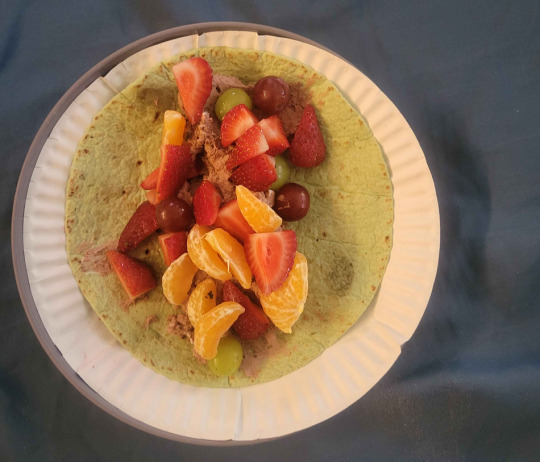
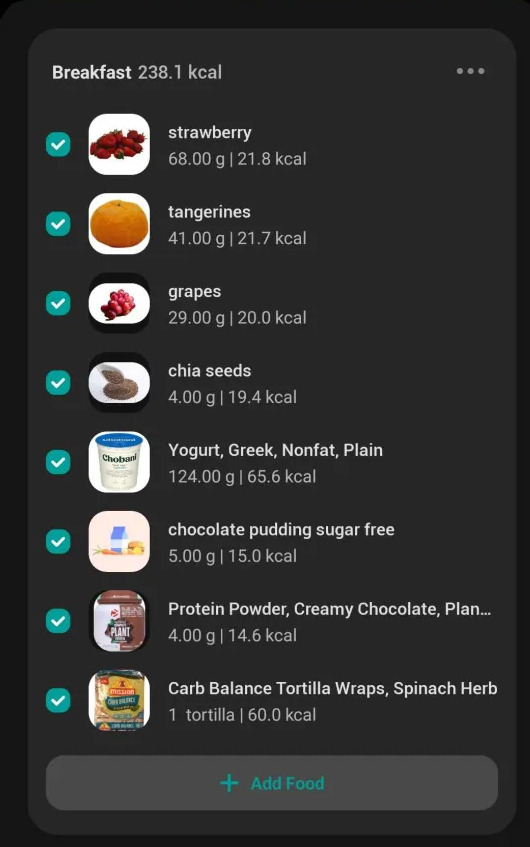
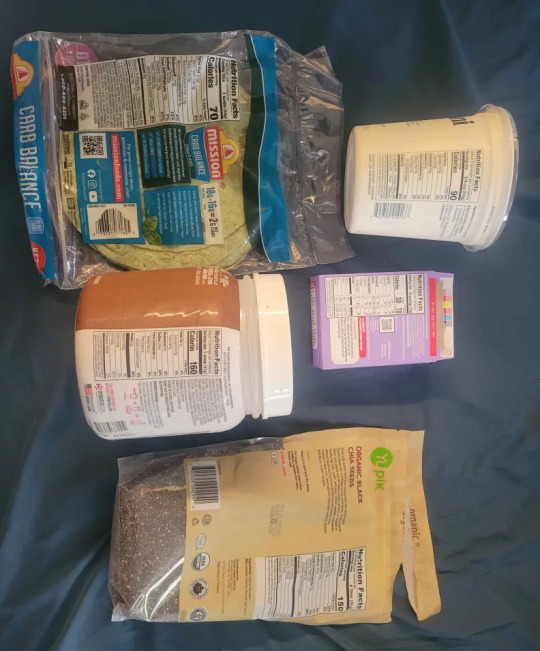
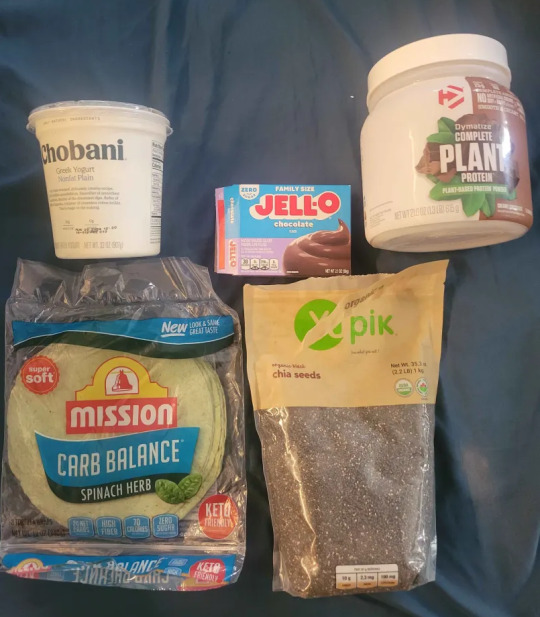
INGREDIENTS
Heads up! All of these measurements are "measured with love", i measure them out as i make them on a scale but each time i make it the portions are all a lil different.
LOW CALORIE, HIGH FIBER TORTILLA
So what we have here is a low calorie, high fiber Tortilla, I do Mission Carb Balance Spinach tortillas because the flavor is light and overshadowed by the flavors but it provides the most fiber and protein for the least amount of calories (of the Mission Carb Balance Tortillas which are the only real high fiber low cal Tortillas I have access too in my area)

THE FILLING
The filling is made with a base of Greek Yogurt (Nonfat and Plain for me, but low fat, full fat, vanilla, etc all works ofc, everyones needs are different, I get my fat from other sources!) 125-175 grams is usually good for me.
Some Zero Sugar Pudding Mix (Chocolate because its what is easier for me to find, but any flavor can be delicious) 5-12 grams is usually good for me (depends on how much yogurt you use)
Chia seeds, these things are AMAZING, they are packed densely with all sorts of nutritious macros and micros, great fiber content. I usually do about 3-7 grams of these.
(Optional) Toss like 3-6 grams of protein powder in there just to bump the protein in it. This is wholly optional. I use chocolate protein powder in this.
(Optional) Drop a no calorie sweetener in there if you want. I use a packet of splenda, but like you can use monkfruit or whatever.
Aight, you got all the above and measured with love to whatever you want? Mix it up! The powders will thicken the yogurt, so if you need to add some more yogurt too it (if you tracking your stuff, don't forget to weigh and track that added bits!)
THE FRUIT
Choose 3-4 types of fruit, I usually go for about 120-140 grams of fruit. In this one i did grapes, tangerines and strawberries. Banana, Cherry and apple are great contenders too.
PUTTING IT ALL TOGETHER
Heat the tortilla up in a skillet on low heat, you want it warmed up but still supple.
Slap the Filling in there.
Slap the Fruit on there.
Curl it up like a taco and eat
THE DEETS
This is the profile for this specific version I made today! pictured above.
Calories: 238.1
Macros:
5.3 grams of fat (I usually get my fats elsewhere, but you can use coconut or go low fat/full fat greek yogurt if you want more fats)
44.3 g of carbs (including 19.3g of fiber!)
22.1 g of protein
Micros:
494.7 mg of potassium
100mcg of Vitamin A
51.9mg of Vitamin C
284.5mg of Calcium
2.5mg of Iron
All kinds of other vitamins and minerals that they annoyingly don't let you track easily!
#recipes#my recipes#dessert recipes#healthyfood#healthy food#losing weight#and still love what you eat#fruit#high fiber
1 note
·
View note
Text
What Are the Benefits of Eating Healthy Snacks in Dubai?

Snacking is an integral part of our daily routine, providing us with the energy and nutrients needed to power through our busy schedules. However, the quality of snacks we choose can make a significant difference in our overall health and well-being. In bustling cities like Dubai and Abu Dhabi, where lifestyles are fast-paced and demands are high, opting for Healthy snacks in Dubai and healthy snacks in Abu Dhabi can offer numerous benefits. Let’s explore the advantages of incorporating these nutritious snacks into your diet.
1. Sustained Energy Levels
One of the primary benefits of eating healthy snacks is the sustained energy they provide. Unlike sugary or processed snacks that cause quick spikes and drops in blood sugar levels, healthy snacks such as nuts, fruits, and whole grains offer a steady release of energy. This helps maintain consistent energy levels throughout the day, keeping you alert and productive.
Examples:
Fresh fruit: Apples, bananas, and berries provide natural sugars and fiber.
Nuts and seeds: Almonds, walnuts, and chia seeds are rich in healthy fats and protein.
Whole grain snacks: Oatmeal bars and whole grain crackers offer complex carbohydrates.
2. Improved Nutrient Intake
Healthy snacks are packed with essential vitamins, minerals, and antioxidants that contribute to overall health. By choosing nutrient-dense options, you can help fill the gaps in your diet and ensure your body gets the nutrients it needs.
Examples:
Vegetable sticks with hummus: Carrots, celery, and bell peppers are high in vitamins and paired with protein-rich hummus.
Greek yogurt with berries: A great source of calcium, protein, and antioxidants.
Smoothies: Combining leafy greens, fruits, and a protein source can make a nutrient-packed snack.
3. Weight Management
For those looking to manage or lose weight, healthy snacks can be a game-changer. They help control hunger and prevent overeating during main meals. High-fiber snacks, in particular, make you feel fuller for longer, reducing the likelihood of unhealthy food choices later in the day.
Examples:
Avocado toast: Provides healthy fats and fiber.
Air-popped popcorn: A low-calorie, high-fiber snack.
Apple slices with almond butter: Combines fiber and protein to keep you satisfied.
4. Better Digestion
Eating healthy snacks that are high in fiber promotes better digestion and helps maintain a healthy gut. Fiber-rich foods like fruits, vegetables, and whole grains aid in smooth digestion and can prevent issues such as constipation and bloating.
Examples:
Chia seed pudding: Chia seeds are an excellent source of fiber and omega-3 fatty acids.
Mixed fruit salad: Offers a variety of fibers and digestive enzymes.
Whole grain bread with cottage cheese: Combines fiber and protein to support digestion.
5. Enhanced Mental Focus
Healthy snacks that contain omega-3 fatty acids, antioxidants, and other brain-boosting nutrients can enhance mental focus and cognitive function. Incorporating these snacks into your daily routine can improve concentration and overall brain health.
Examples:
Blueberries: Rich in antioxidants that support brain function.
Walnuts: High in omega-3 fatty acids that are beneficial for cognitive health.
Dark chocolate: Contains flavonoids that improve blood flow to the brain.
6. Boosted Immune System
Nutrient-rich snacks can strengthen your immune system, helping your body fend off illnesses and infections. Snacks high in vitamins C and E, zinc, and other immune-boosting nutrients are particularly beneficial.
Examples:
Citrus fruits: Oranges, grapefruits, and lemons are high in vitamin C.
Sunflower seeds: Packed with vitamin E and other essential nutrients.
Red bell peppers: Contain more vitamin C than oranges.
Conclusion
Choosing healthy snacks in Dubai and Healthy snacks in Abu Dhabi can significantly impact your overall health and well-being. By opting for nutritious, balanced snacks, you can enjoy sustained energy levels, improved nutrient intake, better weight management, enhanced digestion, improved mental focus, and a stronger immune system. Whether you’re at work, at home, or on the go, make the smart choice to fuel your body with healthy snacks and experience the numerous benefits they bring.
Visit our website for more information:https://diettox.com/
0 notes
Text
10 Easy and Delicious Recipes for Weight Loss Success

Achieving weight loss success can be both enjoyable and delicious with the right recipes that prioritize nutrition without sacrificing flavor. For breakfast, consider starting the day with a protein-packed smoothie bowl made with Greek yogurt, fresh berries, spinach, and a sprinkle of chia seeds. This meal provides essential vitamins, minerals, and fiber, keeping you full and energized throughout the morning. Another great option is a vegetable omelet loaded with bell peppers, tomatoes, and spinach, offering a low-calorie, high-protein start to the day. For lunch, a quinoa salad with mixed greens, cherry tomatoes, cucumbers, and a light vinaigrette dressing delivers a satisfying meal rich in nutrients and fiber, helping to maintain satiety and support healthy digestion.
Dinner can be both simple and flavorful with dishes like grilled salmon served with a side of steamed broccoli and roasted sweet potatoes. This meal combines lean protein with healthy fats and complex carbohydrates, providing a balanced dinner that aids in weight loss. Another tasty option is a stir-fry made with lean chicken, colorful bell peppers, snap peas, and carrots, all tossed in a light soy-ginger sauce. This dish is quick to prepare and full of nutrients that promote weight management. For a guilt-free dessert, try a chia seed pudding made with almond milk and topped with fresh fruit. These recipes not only support weight loss but also ensure that your meals are satisfying and enjoyable, making it easier to stick to your healthy eating plan.
#anamia#it's not as simple as just eating#lose weight#buliimix#i need to lose so much weight#trigger warning ed#eating disorder#ed twitter#ed tumblr#i will be a skeleton#i want to be skinnier#i want to be weightless#not pro just using tags#just pro for me#meanspo#ana trigger#tw ed rant#ed relapse#weight loss#bullimia#anarexia#obesity#motivation#tumblr#weight loss tips#lose weight tips#losing weight tips#healthy lifestyle#healthy weight loss#healthy habits
0 notes
Text
Breakfast Ideas for Weight Loss: Quick and Nutritious Options

Introduction
Starting your day with a nutritious breakfast sets the tone for healthy eating habits and can aid in weight loss efforts. In this article, we'll explore various breakfast ideas tailored for fast weight loss.
Factors to Consider
Nutrient Density
When choosing breakfast foods for weight loss, opt for nutrient-dense options that provide essential vitamins, minerals, and antioxidants without excess calories.
Portion Control
Keeping portions in check is crucial for weight management. Even healthy foods can contribute to weight gain if consumed in large quantities.
Balanced Macronutrients
Aim for a balance of protein, carbohydrates, and healthy fats in your breakfast to keep you satisfied and energized throughout the morning.
High-Protein Options
Eggs
Eggs are an excellent source of high-quality protein and essential nutrients like choline, which supports brain health. Enjoy them boiled, scrambled, or as an omelet with vegetables.
Greek Yogurt
Greek yogurt is rich in protein and probiotics, which promote gut health. Pair it with fresh fruit and a sprinkle of nuts or seeds for added flavor and texture.
Protein Smoothies
Blend together protein powder, leafy greens, berries, and a healthy fat source like avocado or nut butter for a quick and satisfying breakfast on the go.
Fiber-Rich Choices
Oatmeal
Oatmeal is a fiber powerhouse that helps keep you full and satisfied. Choose rolled oats or steel-cut oats and top them with fruit, nuts, and a drizzle of honey for sweetness.
Chia Seed Pudding
Chia seeds are packed with fiber, omega-3 fatty acids, and protein. Mix them with your choice of milk and flavorings like vanilla or cocoa powder for a creamy pudding-like texture.
Whole Grain Toast with Avocado
Whole grain toast topped with mashed avocado and a sprinkle of sea salt is a simple yet satisfying breakfast option that provides fiber and healthy fats.
👉 Say Goodbye to Pounds! Order Today>>.
Low-Calorie Options
Fresh Fruit Salad
A refreshing fruit salad made with a variety of colorful fruits is low in calories but high in vitamins, minerals, and antioxidants. Experiment with different fruit combinations for variety.
Vegetable Omelet
Load up your omelet with colorful vegetables like bell peppers, spinach, tomatoes, and onions for a nutrient-packed breakfast that's low in calories and high in flavor.
Cottage Cheese with Berries
Cottage cheese is a high-protein, low-calorie option that pairs perfectly with sweet berries for a satisfying and nutritious breakfast.
Meal Prep Tips
Batch Cooking
Spend some time on the weekend batch cooking breakfast items like hard-boiled eggs, oatmeal, and smoothie ingredients for easy grab-and-go options during the week.
Portioning Ahead
Pre-portioning ingredients like yogurt, fruit, and nuts into individual containers makes it easier to control portions and avoid overeating.
Freezing Options
Freeze extras of items like smoothie ingredients, muffins, and breakfast sandwiches for quick and convenient breakfasts on busy mornings.
Hydration Importance
Water Consumption
Start your day with a glass of water to rehydrate your body after a night of sleep. Staying hydrated can help curb cravings and support weight loss efforts.
Herbal Teas
Swap sugary beverages for herbal teas like green tea or peppermint tea, which can boost metabolism and aid digestion.
Infused Water Recipes
Add flavor to your water by infusing it with fresh fruits, herbs, or cucumber slices for a refreshing and hydrating beverage without added calories.
👉 Start Your Transformation !!! CHECK NOW >>>
Mindful Eating Practices
Slow Down While Eating
Take the time to savor and enjoy your breakfast instead of rushing through it. Eating slowly can help you tune in to your body's hunger and fullness cues.
Mindful Chewing
Chew your food thoroughly and pay attention to the flavors and textures. This mindful approach to eating can help prevent overeating and promote better digestion.
Avoid Distractions
Avoid eating breakfast while distracted by screens or other activities. Instead, focus on your meal and the experience of eating to promote mindful eating habits.

Sustainable Habits
Consistency Over Perfection
Focus on making small, sustainable changes to your breakfast routine rather than striving for perfection. Consistency is key when it comes to long-term weight loss success.
Incorporating Variety
Keep your breakfasts interesting and enjoyable by incorporating a variety of flavors, textures, and ingredients. Experiment with new recipes and ingredients to keep things fresh.
Listening to Hunger Cues
Pay attention to your body's hunger and fullness cues to guide your breakfast choices. Eat when you're hungry and stop when you're satisfied to maintain a healthy relationship with food.
Conclusion
Incorporating nutritious and satisfying breakfast options into your daily routine can support your weight loss goals while providing essential nutrients and energy for the day ahead. By choosing foods that are high in protein, fiber, and essential nutrients, practicing portion control and mindful eating, and staying hydrated, you can set yourself up for success on your weight loss journey. Start experimenting with these breakfast ideas today to discover what works best for you and enjoy the benefits of a healthy start to your day.
#healthylifestyle#healthy diet#low cal diet#low calorie meals#waist goals#i need to lose so much weight#fat loss#fat belly#weight loss diet#diet plan
0 notes
Text
The Essential Keto Cookbook (Physical) the Ultimate Keto Meal Plan
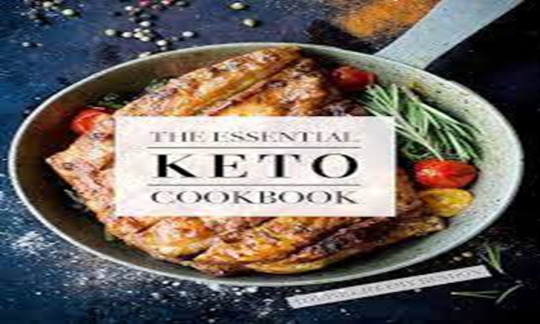
Introduction
The ketogenic diet, or keto diet for short, is a high-fat, low-carbohydrate eating plan that has gained popularity for its potential health benefits and effectiveness in weight loss. In this comprehensive guide, we'll delve into the intricacies of crafting the ultimate keto meal plan to help you achieve your health and fitness goals.
Definition of the Keto Diet
At its core, the keto diet involves drastically reducing carbohydrate intake and replacing it with healthy fats. This metabolic state, known as ketosis, prompts the body to burn fat for fuel instead of carbohydrates. By shifting the body's primary fuel source, the keto diet aims to promote fat loss, stabilize blood sugar levels, and enhance mental clarity.
You can also try this The Essential Keto
Importance of Meal Planning on Keto
Meal planning is crucial on the keto diet to ensure that you're consuming the right balance of macronutrients and staying within your daily carb limit. By strategizing your meals in advance, you can avoid impulsive food choices and maintain ketosis more effectively.
Understanding Macronutrient Ratios
To achieve ketosis, it's essential to understand the role of macronutrients – carbohydrates, proteins, and fats – and their respective ratios in the keto diet. Unlike traditional diets that focus on calorie counting, keto emphasizes specific macronutrient percentages to achieve metabolic ketosis.
Role of Carbohydrates, Proteins, and Fats
Carbohydrates are restricted to a minimal amount on the keto diet, typically comprising less than 5-10% of total daily calories. Proteins should be consumed in moderate amounts to support muscle maintenance and repair, while fats become the primary source of energy, constituting around 70-80% of total daily calories.
Ideal Macronutrient Ratio for Keto
A standard keto macronutrient ratio is approximately 70% fats, 20-25% proteins, and 5-10% carbohydrates. However, individual macronutrient needs may vary based on factors such as activity level, metabolic rate, and weight loss goals.
you can also try this The Essential Keto
Building a Balanced Keto Plate
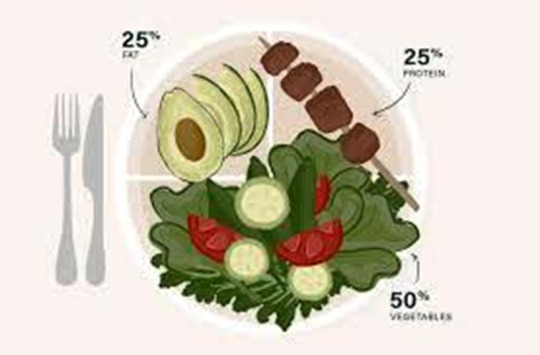
Creating a balanced keto plate involves selecting nutrient-dense foods that align with the diet's macronutrient guidelines. Focus on incorporating low-carb vegetables, quality protein sources, and healthy fats to optimize your nutritional intake while maintaining ketosis.
Incorporating Low-Carb Vegetables
Low-carb vegetables such as leafy greens, cruciferous vegetables, and avocados are excellent choices on the keto diet. These nutrient-packed options provide essential vitamins, minerals, and fiber without significantly impacting blood sugar levels.
Choosing Quality Protein Sources
When selecting protein sources on keto, prioritize lean cuts of meat, poultry, fish, and eggs. Aim for high-quality, minimally processed options to avoid hidden carbohydrates and unhealthy fats.
Optimal Fats for Keto
Healthy fats play a central role in the keto diet, providing sustained energy and promoting satiety. Opt for sources like avocados, nuts, seeds, olive oil, and fatty fish to meet your fat intake goals while supporting overall health.
Planning for Breakfast
Start your day off right with a satisfying keto breakfast that sets the tone for stable energy levels and mental clarity. Explore low-carb breakfast options and implement meal prep strategies to streamline your morning routine.
Low-Carb Breakfast Options
Kickstart your morning with keto-friendly breakfast options such as omelets, frittatas, or scrambled eggs loaded with veggies and topped with avocado. Alternatively, enjoy a hearty serving of Greek yogurt with nuts and berries for a protein-packed start to your day.
Meal Prep Tips for Busy Mornings
Save time and minimize stress by preparing breakfast components in advance. Consider batch cooking egg muffins, chia seed pudding, or overnight oats made with unsweetened almond milk and topped with sliced almonds and coconut flakes.
Crafting Satisfying Lunches
Keep midday hunger at bay with nourishing keto lunch ideas that provide a satisfying blend of protein, healthy fats, and fiber. Explore salad options and simple recipes that can be prepared ahead of time for convenient on-the-go meals.
Keto-Friendly Salad Ideas
Elevate your lunchtime routine with creative keto salad combinations featuring leafy greens, roasted vegetables, grilled chicken or salmon, and creamy avocado dressing. Experiment with different flavor profiles and textures to keep your meals exciting and satisfying.
Quick and Easy Lunch Recipes
If you're short on time, whip up quick and easy keto lunch recipes like lettuce wraps filled with tuna salad, chicken Caesar salad wraps using romaine lettuce leaves, or zucchini noodles tossed with pesto and cherry tomatoes.
you can also try this The Essential Keto
Enjoying Flavorful Dinners
Make dinnertime a culinary adventure with delicious keto dinner recipes that cater to your taste preferences and dietary needs. Whether you're cooking for one or feeding a family, there's no shortage of flavorful options to explore on the keto diet.
Delicious Keto Dinner Recipes
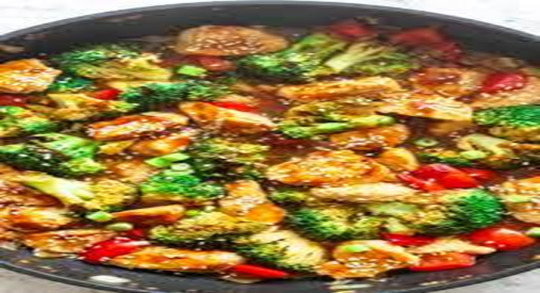
Indulge in mouthwatering keto dinner recipes such as grilled steak with garlic butter, baked salmon with lemon dill sauce, or cauliflower crust pizza topped with assorted veggies and cheese. Get creative in the kitchen and experiment with different ingredients to keep your meals exciting and satisfying.
Tips for Dining Out on Keto
Eating out while following a keto diet doesn't have to be challenging. Arm yourself with knowledge and strategies to make informed choices at restaurants, cafes, and social gatherings without derailing your progress.
Snacking Smartly on Keto
Satisfy cravings and keep hunger at bay with nutritious keto snack options that support your dietary goals. Explore a variety of snack ideas and strategies to navigate common snacking pitfalls on the keto diet.
Nutritious Keto Snack Ideas
Stock up on keto-friendly snacks such as cheese and charcuterie platters, celery sticks with almond butter, or homemade kale chips seasoned with sea salt and nutritional yeast. These portable options are perfect for on-the-go munching and provide a satisfying combination of protein, fats, and fiber.
Avoiding Common Snacking Pitfalls
While snacking can be part of a healthy keto lifestyle, it's essential to choose nutrient-dense options and practice portion control to prevent overeating. Be mindful of hidden carbohydrates in packaged snacks and prioritize whole foods whenever possible.
Staying Hydrated and Mindful of Electrolytes
Proper hydration and electrolyte balance are critical for overall health and well-being, especially when following a ketogenic diet. Learn how to stay hydrated and replenish essential electrolytes to support optimal performance and prevent potential side effects.
Importance of Hydration on Keto
Maintaining adequate hydration is essential on the keto diet, as the body excretes more water and electrolytes during ketosis. Aim to drink at least 8-10 glasses of water per day, and increase your intake if you're physically active or exposed to hot weather conditions.
Electrolyte-Rich Beverage Options
In addition to water, incorporate electrolyte-rich beverages such as bone broth, coconut water, or sugar-free sports drinks into your daily routine. These hydrating options help replenish electrolytes like sodium, potassium, and magnesium, which play vital roles in muscle function, nerve signaling, and fluid balance.
Incorporating Intermittent Fasting with Keto
Combine the power of intermittent fasting with the metabolic benefits of the keto diet to supercharge your weight loss efforts and optimize overall health. Discover the synergistic effects of these two dietary approaches and learn how to implement them effectively.
you can also try this The Essential Keto
Benefits of Intermittent Fasting
Intermittent fasting, or IF, involves cycling between periods of eating and fasting to promote metabolic flexibility and fat loss. By restricting the window of time in which you consume food, intermittent fasting can enhance ketosis, improve insulin sensitivity, and stimulate autophagy, the body's natural process of cellular repair and regeneration.
Tips for Combining Keto with Intermittent Fasting
If you're new to intermittent fasting or keto, start gradually and experiment with different fasting protocols to find what works best for your body. Consider starting with a 16:8 fasting schedule, where you fast for 16 hours and eat within an 8-hour window, and adjust as needed based on your goals and lifestyle.
Adjusting and Customizing the Meal Plan
Listen to your body's signals and make adjustments to your meal plan as needed to ensure long-term sustainability and success on the keto diet. Embrace a flexible approach that allows for customization and experimentation while staying true to the core principles of keto.
Listening to Your Body's Signals
Pay attention to how your body responds to different foods and eating patterns, and adjust your meal plan accordingly to optimize your health and well-being. Trust your instincts and prioritize foods that make you feel energized, satisfied, and nourished.
Making Sustainable Changes for Long-Term Success

Remember that the keto diet is not a one-size-fits-all approach, and what works for one person may not work for another. Focus on making sustainable changes that align with your preferences, lifestyle, and health goals, and seek support from healthcare professionals or registered dietitians if needed.you can also try this The Essential Keto
Conclusion
Crafting the ultimate keto meal plan requires careful consideration of macronutrient ratios, meal timing, and food choices to support your health and fitness goals. By following the guidelines outlined in this comprehensive guide, you can create a sustainable and enjoyable eating plan that promotes ketosis, fuels your body, and enhances your overall well-being.
Disclaimer:
This article may contain affiliate links, which means I may earn a commission if you click through and make a purchase. This comes at no additional cost to you and helps support the creation of valuable content to assist you on your keto journey. Please understand that I only recommend products or services that I personally believe in and have experience with. Your support is greatly appreciated.
0 notes
Text
I Ate Chia Pudding Every Day for a Week and Lost 5 Pounds - My Weight Loss Results
What is Chia Pudding? Chia pudding is a creamy and delicious breakfast, snack, or dessert option. It can be eaten plain or with a variety of additions such as fresh fruit, nuts, coconut flakes, and other toppings. Chia pudding can easily be made at home with just a few simple ingredients, including chia seeds, nut milk, and sweetener. Chia pudding is a gluten-free and vegan-friendly dish that is rich in antioxidants, omega-3 fatty acids, fiber, and other important nutrients. It can be enjoyed warm or cold, and is a great way to start or end your day. What are the Health Benefits of Eating Chia Pudding? Chia pudding is a nutritious and tasty dish made with chia seeds, liquid, and a sweetener of your choice. Chia pudding is a great way to add more of the plant-based protein, Omega-3 fatty acids, and dietary fiber to your diet. Consuming chia pudding has a variety of health benefits including weight loss, improved metabolic functioning, increased digestive health, and improved overall health. Chia pudding also is a great source of calcium and magnesium which are both important nutrients for keeping your bones healthy. Eating chia pudding on a regular basis can help regulate cholesterol, blood sugar, and even reduce inflammation in the body. People prone to allergies can also benefit from the anti-inflammatory properties of chia pudding. Furthermore, it is a great way to get your daily dose of vitamins and minerals. What are the Nutritional Facts of Chia Pudding? Chia pudding is an excellent source of many essential nutrients. It provides a great amount of omega-3 fatty acids, fiber, protein, and essential minerals such as manganese, calcium, magnesium, and iron. Chia pudding is also naturally low in calories and sugar, making it an ideal meal choice for those trying to lose or manage their weight. Furthermore, chia pudding is a dish that is loaded with antioxidants, which are known to help protect your body from damaging free radicals. Chia seeds also contain a significant amount of omega-3 fatty acids that are known to have anti-inflammatory properties. Additionally, chia pudding provides a great source of fiber, which helps to promote digestive health and regulate bowel movements. In addition, chia pudding is a wonderful source of plant based proteins which can help keep you feeling full for longer periods of time. With all of these beneficial nutrients and a low-calorie content, chia pudding is an excellent choice as part of a nutritious diet. What is the Ideal Serving Size for Chia Pudding? Chia pudding is a delicious and satisfying snack or dessert. Typically, a serving size of chia pudding should be around 1/2 cup. This is the ideal amount for one serving, as it is enough to give you a satisfying feel and help with portion control. However, if you are just eating it as a snack, you can adjust the amount to 1/4 cup, which is the perfect size. It's important to remember that the serving size is only a suggestion and can be adjusted based on your own preferences and nutrient needs. As chia pudding is high in fiber and protein, it is important to adjust the servings size depending on your immediate nutrition needs. If you are looking to lose weight, it is better to go with a smaller serving size to help with overall calorie control. How to Prepare Chia Pudding? Chia pudding is a delicious and nutritious snack or breakfast option best prepared the night before. All you need to make chia pudding are chia seeds, a liquid, and any desired mix-ins. Start by combining 1/4 cup of chia seeds with 1 cup of a liquid of your choice in a bowl. Whisk the mixture together until the ingredients combine and the chia seeds expand. Add your desired mix-ins into the mixture, such as yogurt, honey, berries, or any other ingredients. Once combined, transfer your chia pudding mixture into a sealed container and refrigerate it overnight. In the morning you’ll have a creamy and delicious chia pudding that is ready to be enjoyed anytime! Chia pudding can be made in any flavor so let your creativity shine and have fun with the process. Why Eating Chia Pudding Every Day Can Help with Weight Loss? Chia pudding is an excellent choice for those looking to lose weight. It is low in calories, high in fiber and protein, and full of important micronutrients. Combined with a healthy diet and regular exercise, consuming chia pudding can help boost weight loss. Chia pudding is rich in essential fatty acids, which may help suppress the appetite. These polyunsaturated fats trigger hormones in the body that send signals to the brain to let it know that you’re full. Eating chia pudding can also provide a feeling of fullness, preventing you from overeating. Additionally, chia pudding is easy to prepare, providing a convenient weight-loss snack option to help curb cravings and hunger pangs. What is the Best Time of Day to Eat Chia Pudding? Many people wonder what the best time of day to consume chia pudding is. While there is no single answer which applies to everyone, many health experts believe that the best time to eat chia pudding is first thing in the morning. Eating chia pudding for breakfast has the potential to provide hours of energy without the need for sugary snacks throughout the morning. Additionally, the proteins and essential minerals found in chia pudding can help one start their day with proper nutrition. Furthermore, chia provides felt benefits nearly immediately due to its rapid absorption rate. All of these factors contribute to why consuming chia pudding in the morning is often seen as the most beneficial. Tips to Maximize Weight Loss Results When Eating Chia Pudding Every Day One of the most effective ways to maximize weight loss results when eating chia pudding every day is to increase the amount of fiber in your diet. Fiber helps to keep you feeling full for longer, so you won't be as tempted to overeat. Increasing the amount of fruit and vegetables in your diet can help increase your fiber intake. Another way to maximize your weight loss results when eating chia pudding every day is to reduce the amount of sugar in your diet. Refined sugars can lead to unwanted weight gain, so removing them from your diet can help you to maintain a healthy weight. Eating whole foods and limiting refined carbohydrates can help you do this. Additionally, try to eat chia pudding as a snack in place of sugary desserts or processed snacks. Doing this can help you to reduce your overall sugar intake and improve your overall health. What is Chia Pudding? Chia pudding is a creamy, sweetened pudding-like dish made with chia seeds. The chia seeds are mixed with a liquid such as milk, yogurt, juice, or plant-based milk and then left to thicken and set. The result is a delicious, thick pudding with a tapioca-like texture. What are the Health Benefits of Eating Chia Pudding? Chia pudding is a nutritious food that can provide many health benefits. It is a good source of dietary fiber, protein, omega-3 fatty acids, antioxidants, and minerals such as calcium, magnesium, and iron. Additionally, chia pudding is low in calories, making it a great choice for people looking to lose weight. What are the Nutritional Facts of Chia Pudding? Chia pudding is a low-calorie food that is a good source of dietary fiber and protein. It is also a good source of omega-3 fatty acids, antioxidants, and minerals such as calcium, magnesium, and iron. A one-cup serving of chia pudding has approximately 140 calories, 8 grams of protein, 8 grams of dietary fiber, and 6 grams of fat. What is the Ideal Serving Size for Chia Pudding? It is recommended to consume one cup of chia pudding per day. This serving size is enough to provide the necessary nutrients and is also low in calories, which makes it ideal for weight loss. How to Prepare Chia Pudding? To make a delicious chia pudding, start by mixing 1/4 cup of chia seeds with 1 cup of any liquid, such as milk, yogurt, juice, or plant-based milk. Stir the mixture until the chia seeds are well incorporated. You can then add any desired sweeteners, such as honey, maple syrup, or sugar, and stir until combined. Finally, refrigerate the mixture for at least an hour or overnight and enjoy your chia pudding. Why Eating Chia Pudding Every Day Can Help with Weight Loss? Eating chia pudding every day can help with weight loss due to its low calorie count and high dietary fiber content. The high fiber content helps to keep you feeling full for longer, which can help you eat less and reduce your overall calorie intake. Additionally, the protein and healthy fats present in chia pudding can help keep you energized and reduce cravings. What is the Best Time of Day to Eat Chia Pudding? Chia pudding is a great snack or light meal that can be enjoyed any time of day. It is especially beneficial when eaten as a snack between meals, as it can help keep you full and prevent overeating at your next meal. Tips to Maximize Weight Loss Results When Eating Chia Pudding Every Day? To maximize weight loss results when eating chia pudding every day, make sure to stick to the ideal serving size of 1 cup. Additionally, try to opt for unsweetened or minimally sweetened chia puddings, as added sugars can add unnecessary calories. Finally, make sure to include other healthy foods in your diet to help support your weight loss goals. Read the full article
0 notes
Text
HEALTHY AND DELICIOUS SWEETS FOR BHAI DOOJ 2023
Bysabezy-contentwriter
Bhai Dooj is a festival that celebrates the bond between brothers and sisters. It is a time of joy, love, and of course, indulgence in delicious sweets. However, if you’re conscious about your health and want to enjoy the festivities without compromising your well-being, this blog is for you. In this blog, we will explore a range of healthy and delicious sweet recipes that you can prepare for Bhai Dooj 2023. These guilt-free treats will not only satisfy your cravings but also keep you on track with your health goals.
1. Oats and Dates Energy Balls :
With these energizing Oats and Dates Energy Balls, you can kickstart your healthy sweet journey. These bite-sized snacks are packed with healthy nutrients, such as oats, dates, nuts, and seeds. They taste great and give you a quick energy boost. Discover how to prepare these simple, no-bake energy balls that are ideal as an on-the-go snack throughout the holiday season. have these energy balls sweet on this Bhai Dooj and celebrate the festival with guilt-free sweet cravings.
2. Banana Chocolate Chip Muffins :
Indulge in the goodness of bananas and chocolate with these moist and flavorful Banana Chocolate Chip Muffins. These healthier alternatives to traditional sweets are made with whole wheat flour, ripe bananas, and dark chocolate chips. Discover the secret to achieving the perfect texture and taste while keeping the calorie count in check.
3. Coconut Almond Ladoo :
Coconut Almond Ladoo is a delightful sweet that combines the nutty flavors of almonds with the tropical taste of coconut. These protein-rich ladoos are made with almond flour, desiccated coconut, and a touch of sweetness from natural sweeteners like honey or dates. Learn how to make these delectable treats that are perfect for guilt-free indulgence.
4. Chia Seed Pudding :
A tasty and adaptable treat, chia seed pudding can be tailored to your personal preferences. Chia seeds are a nutrient-dense base since they are full of fiber, antioxidants, and omega-3 fatty acids. Discover a variety of flavor combinations, such as chocolate, berry, or mango, and savor a guilt-free, creamy treat.
5. Baked Gujiya :
Gujiya is a traditional Indian sweet that is usually deep-fried. However, you can enjoy a healthier version of this festive treat by baking it instead. Filled with a mixture of nuts, coconut, and jaggery, these baked gujiyas are crispy on the outside and deliciously sweet on the inside. Discover the baking techniques and tips to create a guilt-free version of this classic sweet.
6. Yogurt Parfait :
Yogurt parfait is the ideal choice if you’re searching for a cool and nutritious dessert. This healthy treat is aesthetically pleasing and full of nutrients thanks to its layers of Greek yogurt, fresh fruit, and crunchy granola. Discover how to make a stunning parfait that is both delicious and impressive for your loved ones.
7. Dark Chocolate Covered Strawberries :
Dark Chocolate Covered Strawberries are a simple yet elegant sweet treat that is perfect for any occasion. Strawberries are dipped in melted dark chocolate, which is rich in antioxidants and has numerous health benefits. Discover the art of creating these decadent treats that will satisfy your sweet tooth without derailing your healthy eating plan.
8. Baked Apple Roses :
Baked Apple Roses are not only visually stunning but also a healthier alternative to traditional pastries. Thinly sliced apples are rolled into rose shapes and baked to perfection. These beautiful and fragrant treats are low in calories and packed with fiber and vitamins. Learn how to make these impressive apple roses that will impress your loved ones.
9. Quinoa Kheer :
Kheer, a traditional Indian rice pudding, can be made healthier by substituting rice with quinoa. Quinoa is a protein-rich grain that adds a nutty flavor and a delightful texture to the kheer. Discover the recipe for this nutritious and delicious dessert that will leave you feeling satisfied and guilt-free.
10. Watermelon Pizza :
For a cool and healthful meal, try making some watermelon pizza. The base is made of slices of watermelon, while the toppings consist of Greek yogurt, fresh fruit, and a tiny bit of nuts or seeds. This vibrant and cool treat will make both adults and children happy on hot, sunny days. You’ll always be hydrated and full of energy with this tasty delight. Savor some delicious sweet delicacies this Bhai Dooj 2023.
Conclusion :
Indulging in sweets during Bhai Dooj doesn’t have to mean compromising your health. With these healthy and delicious sweet recipes, you can enjoy the festivities guilt-free. From energy balls to baked treats and fruity delights, there are plenty of options to satisfy your cravings while nourishing your body. So, surprise your loved ones with these guilt-free sweets and celebrate Bhai Dooj in a healthy and delightful way. Remember, it’s all about balance and making conscious choices that align with your well-being. Visit for more – https://sabezy.com/Healthy-Foods/
#bhai dooj 2023#sweets#bhai dooj sweets#special bhai dooj 2023 sweets#best bhai dooj sweets#healthy sweets#healthy sweets recipe
0 notes
Text
Healthy Breakfast Cereals: A Guide to the Best Gluten-Free Options
In a world where health-conscious eating is on the rise, the importance of a nutritious and satisfying breakfast cannot be overstated. Breakfast cereals have long been a mainstay for many people, and as the desire for healthier options has grown, a new wave of possibilities has developed. This article delves into the world of healthy breakfast cereals, with an emphasis on gluten-free products, to help you get your day started on a healthy note.
The Breakfast Revolution
Breakfast is more than simply the first meal of the day for health-conscious people; it's an opportunity to set a healthy tone for the hours ahead. Breakfast cereal selection is important in this since it may supply the nutrients and energy required to go through the morning.
Healthy Breakfast Cereals
When it comes to breakfast cereals, "healthy" means more than just low calorie content. It includes a variety of aspects such as nutritional profile, components, and dietary concerns. Gluten free cereal has grown in popularity as a way to cater to those who are gluten intolerant, but its appeal extends to a larger audience looking for healthier breakfast alternatives.
Choosing the Best Breakfast Cereal: Gluten-Free and Nutritious
Nutrient Density: The greatest morning cereals are high in nutrients. They supply important vitamins and minerals, as well as a well-balanced macronutrient composition. Look for cereals that provide a large amount of your daily nutritional needs.
Whole Grains: Whole grains are the foundation of nutritious cereals. High in fibre, whole grains do wonders in improving digestion and keeping you feeling full. Furthermore, whole grains are high in essential elements such as B vitamins, iron, and magnesium.
Low Sugar Content: The high sugar content of many cereals is one of its drawbacks. Those with minimal to no added sugar are the best options. They instead rely on natural sweetness from substances such as dried fruits or honey.
Protein Content: Protein is necessary for satiation and muscular health. To keep you feeling full and pleased, a healthy breakfast cereal generally includes protein-rich foods like almonds, seeds, or lentils.
Healthy Fats: Healthy fats, such as those found in nuts and seeds, can give long-lasting energy while also improving the flavour and texture of the cereal.
Top Gluten-Free Breakfast Cereals
Quinoa Flakes: Quinoa is a gluten-free grain that is high in protein and amino acids. Quinoa flakes are an excellent foundation for a filling and healthy breakfast.
Oatmeal: Certified gluten-free oats are commonly available and make a hearty, fiber-rich breakfast. Add fruits, nuts, and seeds to your dish for extra nourishment.
Chia Pudding: When chia seeds are soaked in a liquid, such as almond milk, they form a gel-like consistency that is ideal for breakfast. They're an excellent source of fiber and good fats.
Buckwheat Cereal: Buckwheat, despite its name, is gluten-free and abundant in protein. Buckwheat cereal adds a distinct, nutty flavor to your daily ritual while also providing a nutritious boost.
Millet Flakes: Millet is a gluten-free, easily digestible ancient grain. Millet flakes make a light and crisp breakfast that complements fresh fruits and yogurt.
A Crunchy Beginning to Your Day
While gluten-free cereals have grown popular among health-conscious consumers, they are only one component of the morning jigsaw. Combining them with fresh fruits, yogurt, and a drizzle of honey or maple syrup may improve the flavor and nutritional content of your breakfast.
Healthy Breakfast, Happy You
Breakfast should not be forgotten in the quest of a healthy lifestyle. A well-balanced, gluten-free morning cereal can help you start your day off well. The finest gluten-free breakfast cereals are nutrient-dense, filled with important nutrients, and high in whole grains. As health-conscious people continue to emphasize their well-being, these cereals are a great way to start the day off correctly.
Finally, making conscious decisions about your morning cereal may have a big influence on your general health and well-being. The finest gluten-free breakfast cereals are nutritious powerhouses that will keep you satiated and focused until your next meal. Whether you like the nutty richness of quinoa or the comforting warmth of oatmeal, there is a gluten-free morning cereal to suit your preferences and dietary requirements. So, seize the day and transform your mornings into a crunchy, nutritious joy with the best breakfast cereal for health-conscious people.
0 notes
Text
Unlock the Secret to Weight Loss with Dietary Fiber
Hey there, health-conscious reader! If you're on a quest to shed those extra pounds, I've got some fantastic news for you. You can unlock the secret to weight loss, and guess what? It's right there on your plate – dietary fiber!
The Fiber Puzzle Unveiled

The Fiber Basics
So, what exactly is dietary fiber? Think of it as the superhero of your digestive system. It's the part of plant foods that your body can't digest. Instead, it sweeps through your digestive tract, like a tiny broom, cleaning house as it goes.
Fiber and Fullness
Personal anecdote time: I used to be a victim of those late-night snack attacks. Chips, cookies, you name it. But then, I discovered the magic of fiber. Fiber-rich foods like beans, whole grains, and fruits make you feel full and satisfied for longer. It's like a natural appetite suppressant.
The Metabolism Booster
Now, let's talk about a secret weapon – metabolism. Ever heard of it? It's like the engine under your hood, burning calories even when you're chilling on the couch. Guess what revs up that engine? Yep, dietary fiber!
Personal insight: I added more fiber to my diet, and I swear I felt the difference. My energy levels were up, and I didn't need that extra cup of coffee to get through the day.
10 Must-Have High-Fiber Foods for a Healthy Gut
1. Oats – Your Morning Buddy
Ever started your day with a warm bowl of oatmeal? It's like a cozy hug for your tummy. Oats are packed with soluble fiber, which helps keep your cholesterol in check.
2. Quinoa – The Protein Powerhouse
Quinoa is not only high in protein but also fiber. It's a super versatile grain that can level up your salads, bowls, or even serve as a base for your favorite stir-fry.
3. Berries – Tiny but Mighty
Berries, like strawberries and blueberries, are low in calories but rich in fiber. They're like sweet little gems that support digestion and add a burst of flavor to your day.
4. Lentils – The Fiber-Packed Legumes
Lentils are a personal favorite of mine. They cook up fast, and they're loaded with both protein and fiber. Perfect for soups, stews, or even a hearty salad.
5. Avocado – Creamy Goodness
Avocado toast, anyone? Avocados are not just creamy and delicious; they're also a great source of healthy fats and fiber. Spread 'em, slice 'em, dice 'em!
6. Broccoli – Green and Mean
Mom was right when she told you to eat your broccoli. These little green trees are not only packed with vitamins but also fiber. Roast 'em, steam 'em, or just toss 'em in a stir-fry.
7. Chia Seeds – Tiny Powerhouses
These tiny seeds are like nature's wonder. They swell up in liquid and keep you full for hours. Sprinkle them on yogurt, oatmeal, or make a delicious chia pudding.
8. Apples – Crunchy Goodness
Remember the saying, "An apple a day keeps the doctor away"? Well, it's true! Apples are high in fiber, low in calories, and they make for a convenient, on-the-go snack.
9. Beans – The Fiber-Loaded Legumes
Beans, beans, the magical fruit! They're a fantastic source of both fiber and plant-based protein. Throw 'em in soups, salads, or even make some tasty bean burgers.
10. Whole Grains – Nature's Bounty
Whole grains like brown rice, whole wheat pasta, and quinoa (again!) are excellent sources of fiber. They're the backbone of a healthy, balanced diet.
Slaying Sugar Cravings: How Fiber Can Help!
The Sugar Battle
We've all been there – the irresistible urge for something sweet. But those sugar cravings can be a real hurdle on your path to a healthier you.
Fiber to the Rescue
Here's where fiber swoops in like a superhero. When you consume foods rich in fiber, like the ones we talked about earlier, they help regulate your blood sugar levels. No more wild sugar spikes and crashes!
Personal Victory
I'll admit it; I used to be a sugar fiend. But when I started incorporating more fiber into my diet, I noticed a significant drop in my sugar cravings. It's like magic!
Fiber vs. Weight Gain: How Fiber Can Be Your Ally
The Weight Gain Dilemma
Weight gain can be a real bummer. It sneaks up on you when you least expect it. But guess who can help you fend off those extra pounds? Yep, you guessed it – dietary fiber!
The Fullness Factor
Remember how fiber keeps you feeling full? Well, that's the secret sauce for weight management. When you're satisfied, you're less likely to overeat.
The Calorie Game
Fiber-rich foods are often lower in calories compared to their less fibrous counterparts. So, you can munch away without worrying too much about the calorie count.
My Fitness Journey
I decided to put this to the test. I started focusing on high-fiber foods and gradually watched the scale move in the right direction. It wasn't a quick fix, but it was a sustainable one.
The Fiber Revolution: Transform Your Skin's Health
The Skin Connection
Believe it or not, what you eat affects your skin's health. Radiant skin isn't just about creams and lotions; it starts from within.
The Hydration Factor
Fiber helps retain water in your body, keeping your skin hydrated and glowing. Say goodbye to dry, flaky skin!
The Personal Experience
I used to struggle with dull skin. But when I started paying more attention to fiber-rich foods and staying well-hydrated, I noticed a remarkable improvement in my skin's appearance. It's like I had a natural glow!
Beyond Bran: Unusual Sources of Dietary Fiber You Need to Try!
The Fiber Adventure
Sure, bran is great, but there's a whole world of fiber-rich foods beyond the usual suspects. Let's embark on a culinary adventure!
The Unique Choices
Ever tried jicama, a root vegetable that's crisp and refreshing? How about adding some artichokes to your diet? These unusual sources of fiber can add variety and excitement to your meals.
My Fiber Exploration
I love experimenting in the kitchen. I started trying these not-so-typical fiber sources, and it turned mealtime into a delightful journey of flavors and textures.
Conclusion: Embrace the Fiber Power!
Your Journey Begins
So, there you have it – the secret to weight loss, better digestion, sugar control, and even radiant skin. It's all wrapped up in the humble package of dietary fiber.
My Final Thoughts
I've personally experienced the incredible benefits of including more fiber in my diet. It's not just about losing weight; it's about feeling healthier, more energetic, and happier in your own skin.
Start Small, Go Big

You don't need to overhaul your diet overnight. Start with one high-fiber food you enjoy, and build from there. Your journey to a healthier, fitter you begins with a single bite.
So, what are you waiting for? Grab that oatmeal, slice that avocado, and get ready to embrace the fiber power. Your body will thank you, and your future self will too!
#Unlock the Secret to Weight Loss with Dietary Fiber#DietaryFiber#DietaryFiberWeightLoss#Healthcare#TeleMedicine#OnlineMedicine#OnlineDoctor#AskDoctor
1 note
·
View note
Text
Fuel Your Weight Loss Journey with These 12 Delicious Breakfast Ideas

As someone who has struggled with weight for the majority of my life, I understand how difficult it can be to find nutritious and tasty breakfast options that support weight loss objectives. I've tried various diets and meal plans over the years, and one thing that has remained consistent is the necessity of beginning the day off right with a good breakfast. In this article, I'll explain why breakfast is important for weight loss and give you 12 delicious and healthy breakfast recipes to fuel your weight reduction journey.
The Importance of Breakfast in Weight Loss
For good reason, breakfast is generally referred to be the most essential meal of the day. Your body has been fasting for several hours when you get up in the morning. Breakfast jumpstarts your metabolism, gives your body the energy it needs to start the day, and helps you avoid overeating later in the day. Eating breakfast can also help with weight loss, according to research. Participants in one study consumed fewer calories throughout the day and lost more weight than those who ate a high-carbohydrate breakfast. In contrast, skipping or having an unhealthy breakfast can have the opposite effect on weight loss goals. When you skip breakfast, your metabolism slows and you're more inclined to overeat later in the day, which leads to weight gain.
The Ideal Macronutrient Ratio for Weight Loss Breakfasts
The best macronutrient ratio for weight loss breakfasts is one that is high in protein and fiber and low in carbohydrates. Protein and fiber are both necessary for keeping you full and happy throughout the morning, while carbohydrate restriction can help keep your blood sugar levels consistent and minimize cravings. Incorporate protein and fiber into each of your breakfast meals. Eggs, Greek yogurt, chia seeds, flax seeds, nuts, and nut butter are all wonderful choices.
12 Delicious and Healthy Breakfast Ideas for Weight Loss
1. Greek Yogurt Parfait
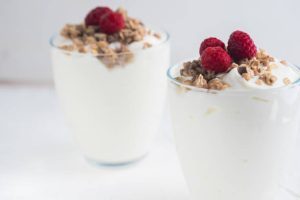
For a high-protein and fiber-rich breakfast, layer Greek yogurt, berries, and almonds or granola. 2. Egg and Veggie Scramble
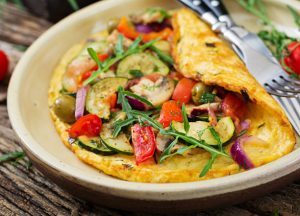
Fuel Your Weight Loss Journey with These 12 Delicious Breakfast Ideas For a hearty and nutritious breakfast, scramble eggs with your favorite veggies like spinach, peppers, and mushrooms. 3. Avocado Toast

Vegan or Vegetarian Toast with mashed avocado, arugula served on wooden board For a filling and healthful breakfast, top whole-grain bread with mashed avocado, a poached egg, and a sprinkling of chili flakes. 4. Chia Seed Pudding
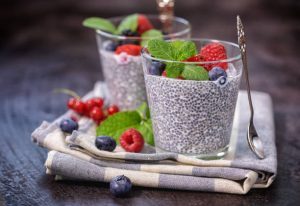
Fuel Your Weight Loss Journey with These 12 Delicious Breakfast Ideas For a high-fiber, protein-packed breakfast, combine chia seeds with almond milk and your preferred sweetener. 5. Quinoa Breakfast Bowl

For a nutrient-dense breakfast, cook quinoa and top with sautéed greens, a fried egg, and avocado. 6. Green Smoothie

For a quick and easy on-the-go breakfast, combine spinach, frozen fruit, almond milk, and protein powder. 7. Egg and Cheese Breakfast Sandwich

For a protein-packed breakfast sandwich, top a whole-grain English muffin with a fried egg, cheese, and avocado. 8. Oatmeal with Fruit and Nuts
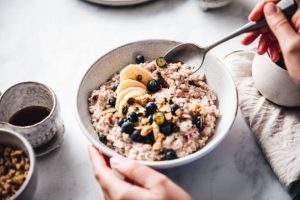
Fuel Your Weight Loss Journey with These 12 Delicious Breakfast Ideas For a nutritious and filling breakfast, cook oats with almond milk and top with fresh fruit, almonds, and a drizzle of honey. 9. Sweet Potato and Egg Skillet

In a skillet, cook sliced sweet potatoes and eggs with your preferred spices for a hearty and savory breakfast. 10. Protein Pancakes

For a high-protein, low-carb pancake batter, combine protein powder, egg whites, and almond milk. Serve with fresh fruit and nut butter on top. 11. Breakfast Burrito

For a hearty and healthful breakfast, stuff a whole-grain tortilla with scrambled eggs, black beans, avocado, and salsa. 12. Egg and Veggie Breakfast Bowl
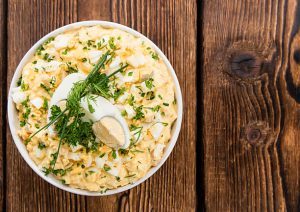
For a protein-packed breakfast dish, sauté your favorite vegetables and top with scrambled eggs, cheese, and avocado.
Why These Breakfast Ideas Are Effective for Weight Loss
Because they are high in protein and fiber and low in carbohydrates, all of the breakfast choices described above are effective for weight loss. Protein and fiber keep you full and content all morning, while carbohydrate restriction can help minimize blood sugar rises and cravings. Furthermore, these breakfast choices include nutrient-dense whole foods that give your body with the vitamins and minerals it requires to function optimally.
Tips for Preparing and Planning Weight Loss Breakfasts
Try meal preparing to make your weight loss breakfasts more manageable and convenient. Make the components for your favorite breakfast recipes ahead of time so you can assemble them quickly in the morning. Make large batches of breakfast dishes such as pancakes, waffles, or muffins and freeze them for convenient reheating during the week. Finally, don't be afraid to experiment with your breakfasts! Experiment with various flavor combinations, try new ingredients, and enjoy your meals.Whole foods that supply your body with the vitamins and minerals it requires to function optimally.
Frequently Asked Questions About Weight Loss Breakfasts
Q: Is it better to eat breakfast before or after a workout? A: Eating breakfast before a workout gives your body the energy it needs to exercise properly. Aim to eat a high-carbohydrate, moderate-protein meal 30 minutes to an hour before your workout. Q: What if I don't have time for breakfast in the morning? A: If you don't have time for a sit-down breakfast in the morning, make a smoothie or protein drink to take with you. You can also prepare overnight oats or chia seed pudding the night before so that you have a ready-to-eat meal in the morning. Q: Can I eat carbs for breakfast and still lose weight? A: You can consume carbohydrates at breakfast and still lose weight. It is, however, critical to select complex carbs that are high in fiber and low in sugar. Whole-grain bread, quinoa, and sweet potatoes are all good choices.
Conclusion and Final Thoughts
A healthy and nutritious breakfast is critical for achieving weight loss objectives. You can keep your hunger at bay, prevent cravings, and boost your body's natural fat-burning processes by integrating high-protein and fiber-rich foods into your breakfasts and limiting your carbohydrate intake. Try out any of the 12 delicious and healthy breakfast ideas listed above to determine which ones suit you best. You can fuel your weight reduction journey with enjoyable and nutritious breakfasts every day with a little ingenuity and planning. Read the full article
0 notes